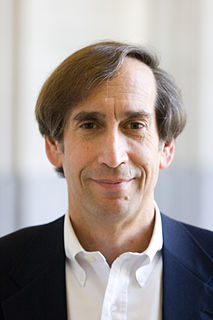A Quote by Aaron McGruder
The American people have no control over what the military does. We have no say in American foreign policy.
Related Quotes
There are those who would draw a sharp line between power politics and a principled foreign policy based on values. This polarized view - you are either a realist or devoted to norms and values - may be just fine in academic debate, but it is a disaster for American foreign policy. American values are universal.
Together, these advocates create a pro-Israeli case so compelling that the idea and reality of Israel has worked itself deep into American culture, politics and foreign policy. Many American Jews refuse to accept it, but the real debate between Israel’s supporters and detractors in America is all but over.
The thing that should most concern us is a shift in American foreign policy. We have had a bipartisan belief in American foreign policy based on the post-World War II institutions that believed in democratic global world, which Russia and the Soviet Union was often seen as hostile to. And most Republicans and Democrats have always basically believed in this world order. Donald Trump and Vladimir Putin and maybe Marine Le Pen do not agree with this basic structure of the world.
Americans need to educate themselves, from elementary school onward, about what their country has done abroad. And they need to play a more active role in ensuring that what the United States does abroad is not merely in keeping with a foreign policy elite's sense of realpolitik but also with the American public's own sense of American values.
Bipartisanship on behalf of an imprudent policy can be folly, just as partisanship on behalf of a just cause can be wise. What is clear is that politics will not stop at the water's edge simply because presidents plead for it. American foreign policy will return to the tradition of Truman and Vandenberg only when the American public demands it.








































